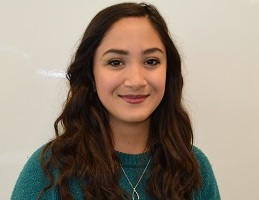Extremist terrorist attack leads to problems in the European-Jewish Community
January 20, 2015
On January 7, 2015, at about 11:30 CET, two masked gunmen forced their way into the office of the satirical newspaper Charlie Hebdo, killing 17 people including four Jewish men. The four men, Yohan Cohen, 20, Yoav Hattab, 21, Philippe Braham, 45, and François-Michel Saada, 64, were killed at a kosher supermarket in Paris in a hostage standoff during a three-day wave of attacks. One of the gunmen, Amedy Coulibaly, claimed his allegiance to al-Qaeda and the Islamic State.
On the days following the event, mourners held signs with photographs of the victims and the words “Je suis mort parce que juif” and “I died because I am Jewish.” Representing the French government, Energy Minister Ségolène Royal stated, “The four people were killed because they were Jews. Your pain is our pain of France, and we are crying with you. France is suffering just like you.”
Royal later went on to claim, “There is no room for anti-Semitism in France- that was the message of millions of people who marched on France on Sunday. France is proud to hold the largest population of Jews in Europe,” Royal. He noted that the four Jewish victims of the shooting would be posthumously awarded France’s Legion of Honor.
The killing of the four men prompted calls from Israeli Prime Minister Benjamin Netanyahu for European Jews, especially French Jews, to immigrate to Israel due to the rise in anti-Semitism. French Prime Minister Manuel Valls stated in Atlantic Monthly that if 100,000 French Jews, who make up one fifth of France’s population, left his country, “France will no longer be France. The French Republic will be judged a failure.” In the past year alone, 7,000 French Jews moved to Israel.
Furthermore, because the four Jewish victims were not Israeli citizens, the cost and location of the funerals has changed numerous times. Religious Services Minister Naftali Bennett overturned the decision to charge the families a price equivalent to 12,500 U.S. dollars for each of the burials. Bennett and Deputy Minister Eli Ben-Dahan later announced that the ministry would cover the costs of the funerals.
The French government pressured the victims’ families to have them buried in Israel. The burials would not be officially full state funerals meaning that there was no clear procedure for who would cover the cost. There is still no clarity on where the victims would be buried.
The Yemenite burial society on the Mount of Olives offered the families plots in the ancient cemetery for 15,000 euros apiece. According to Meshi-Zahav, the plots were in a distant and unsafe portion of the cemetery. Due to these circumstances, the government decided the funeral could not be held here for security and safety concerns.
A businesswoman later went on to offer the families plots in her private section in Jerusalem’s Har Hamenuchot cemetery. This deal, however, ran into problems with the cemetery’s rules.
The families and the government spoke to the Sephardi burial society, who had originally offered the victims’ families a burial on the Mount of Olives, but the government rejected the proposal. Many burials in Israel take place in large multi-story grave complexes necessitated by a lack of space in the county and its cemeteries.
After the families refused to have the victims buried in multi-story graves for free, the burial society finally agreed to give them in-ground burials at Har Hamenuchot each for NIS 50,000, which is the Israeli New Sheqel currency. NIS 40,000 would cover the cost of the plot and the remaining NIS 10,000 would pay for the burial.
“We buried them without finalizing the figures,” said Burial Society Member Avraham Gilo. The Sephardi burial society claimed it went out of its way to help the families. “The price in this section for foreigners is around NIS 90,000, we will ask for 50%, and maybe even less. But in the meantime we buried them without asking for money; they deserve it, they were murdered because they are Jews.”
Five days after the shooting took place, thousands of mourners gathered on Tuesday for the funerals of Yoav Hattab, Yohan Cohen, Francois-Michel Saada, and Philippe Braham. The ceremony was attended by Prime Minister Benjamin Netanyahu, President Reuven Rivlin, and other Israeli and French officials. Israeli leaders denounced Islamic extremism and the terrorists it is producing, and urged the world to confront the violence issue and restore security.
Netanyahu’s office announced that the funerals would take place in Jerusalem after he had agreed to a request from the families to bury the four in Israel. This decision came about after the Foreign Ministry reached out to the families with an offer to bury the victims in Israel, despite the fact that the men were not Israeli citizens. The four Jewish men were laid to rest after the joint funeral at the cemetery which began shortly after noon on Tuesday, January 13.



